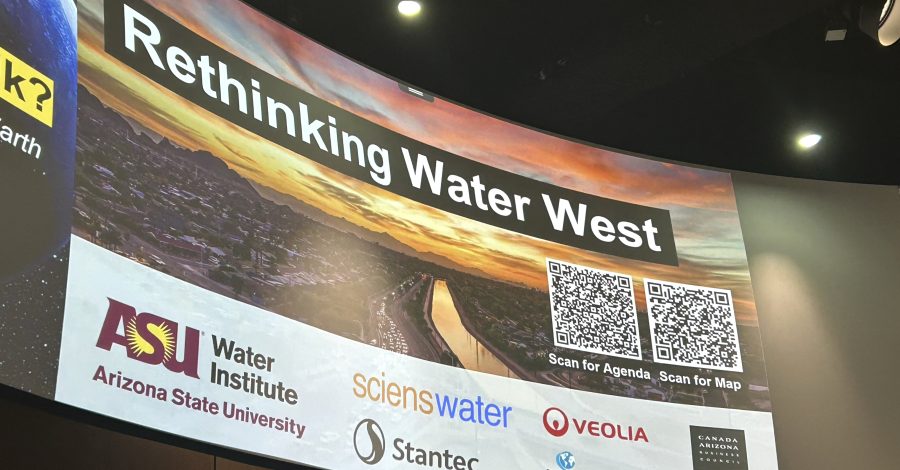March 25, 2025

Rethinking Water West: Insights from ASU’s Conference on Water Resilience and Innovation
WestWater Research recently attended and proudly sponsored Rethinking Water West at Arizona State University, where leaders from across sectors gathered to explore how innovation, finance, and collaboration can unlock a more resilient water future. A recurring theme was the growing role of private capital in what was once a traditionally public space. With rising demand from AI data centers, domestic manufacturing, and growing urban needs, competition for water is intensifying—creating both risk and opportunity. J.P. Morgan and others highlighted that there is no shortage of capital—but deployment hinges on regulatory flexibility, trust, and scalable project structures like public-private partnerships (P3s) and public-private-public partnerships (P4s). Affordable water is becoming more difficult to develop, and investors are increasingly looking to smart, decentralized, and tech-enabled systems that can deliver returns while addressing real infrastructure gaps.
Affordability was a central thread across many panels—particularly in rural and underserved communities where limited tax bases and high infrastructure costs make financing difficult. As ratepayers face higher costs from aging systems and new, more challenging water supply development, speakers emphasized the need for financial innovation that protects vulnerable communities while still attracting investment. Tools like the U.S. EPA’s Water Infrastructure and Innovation Act Program (WIFIA), Arizona’s own Water Infrastructure Finance Authority, and example collaborative public-private models were highlighted as pathways to bridge these gaps. The water sector is evolving rapidly, and successful projects will balance financial viability with social equity— driving sustainable water investments across the West.
Key insights that WestWater participants derived from the event include the growing relevance of alternative financing models for water infrastructure, such as P3s/P4s and private equity-backed developments, especially in underserved or rapidly growing areas. Sessions emphasized the need for pre-committed off-take agreements to advance project feasibility and investment, clear regulatory frameworks, and community buy-in to make projects viable. From floating solar and AI-driven optimization to decentralized water systems in rural communities, innovation is shifting what’s possible in water investment. Yet the message was clear: success depends not just on new technology, but on smart financial design, effective communication, and cross-sector collaboration.